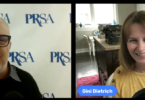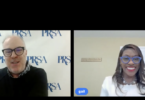This week, the Federal Trade Commission recognized social media and the new ways consumers get information. The result was a quick initiation into the regulatory fold.
After 30 static years, the FTC revised its guidelines for endorsements and testimonials to keep communicators on the right side of unfair competition and false advertising laws (see sections 45 and 53). The new guidelines are advisory, but they will change the way public relations, advertising and marketing professionals need to approach certain strategies, tactics and heretofore best practices.
Essentially, the FTC applied longstanding principles to new media realities. This conceptual leap has, not surprisingly, left bubbling uncertainties in its wake. Further muddying the waters are hosts of snap analyses in the press and online that have left professionals misinformed, confused and quite concerned. Bottom line, no blogger will be dragged off in chains nor any time soon be hit with stiff civil penalties, except in very extraordinary cases.
I can say this because PRSA independently verified the facts. After the news was announced, we resisted the urge to do an instant analysis, did some research and engaged the FTC directly to set the record straight and help members and all communications professionals know how to proceed. With the kind of thought leadership that makes public relations professionals critical to their organizations, the PRSA public relations department drove the effort to gather, analyze and convey an accurate picture.
Bottom line, the guideline changes break new ground in three ways that may impact public relations practice. First, to position bloggers in the regulatory scheme of things, the FTC dubs them “endorsers” and makes endorsers liable, along with advertisers, for false or unsubstantiated claims or for failing to disclose material connections between the parties. Second, the Guides no longer offer a “safe harbor” for testimonials with a “results may vary” disclaimer. Third, celebrities who give endorsements in non-advertising venues now should disclose their relationship with the advertiser.
How do these new guidelines play out for public relations professionals? Here are a few practical examples to help you update your strategic playbook:
- Bloggers who receive cash or in-kind payment (including free products or services for review) are deemed endorsers and so must disclose material connections they share with the seller of the product or service.
- Any firm that engages bloggers by paying them outright to create or influence editorial content or by supplying goods or services to them at no cost may be liable if the blogger does not disclose the relationship.
- Advertisements or promotions that feature a consumer who conveys his or her experience with a product or service as “typical” should clearly disclose what results consumers can generally expect or specify how the results were unique to the individual circumstances.
- If research is cited in an advertisement or promotion, any sponsorship of the research by the client or the marketer should be clearly disclosed.
- Celebrities who make endorsements outside the context of traditional ads, such as on talk shows or in social media, should disclose any relationship with the advertiser or marketer.
Of course, for PRSA the revised Guides resonate with a familiar echo. Transparency principles in the PRSA Code of Ethics parallel both the new guidelines and align with its Professional Standards Advisory PS-9 condemning “pay for play” practices. It’s important to note, though, that while the playing field may seem familiar, the goal lines are different. For practitioners, the guidelines take ethics to the level of recommended practice to avoid legal liability. And, as yet, the nature and triggers associated with “adequate disclosure” are far from fixed. Thinking of ethics compliance as a valuable exercise in self-regulation, as I’ve mentioned in a prior post on this blog, may do the trick for now.
Last but certainly not least, just what are the consequences of ignoring the new guidelines after they take effect on December 1? Theoretically, failure to comply with the guidelines increases the risk of professionals finding themselves in violation of underlying laws. Practically speaking, non-compliance can result in a communication from the FTC warning professionals against the potential offending action. If that warning is not heeded, it may be followed by a cease-and-desist order. Intentional violation of that order may result in referral to FTC enforcement, which may include civil monetary penalties.
Of course, both the profession and the FTC have a long way to go to clarify how the new Guides principals and penalties will sort out. If a blogger returns a book he reviewed online, does he still need to disclose? If the relationship is with a marketing firm versus the product’s manufacturer, does that relationship need to be revealed? What does a blogger need to disclose about research received from a public relations firm promoting client-sponsored research? Does editorial oversight justify different disclosure rules for journalists versus bloggers?
These and other questions need yet to be answered. Going forward, PRSA will continue to provide you with information, clarification, case studies and interpretations as they unfold. Why? Because we’re here to keep the profession at the top of their game.
In the meantime, please join in the discussion and share your thoughts as we continue to dig in and smoke out the facts.
Michael G. Cherenson, APR, is PRSA 2009 chair and CEO.







[…] think that most marketers and agencies would have gotten the point by now the FTC is serious about cracking down on bloggers and companies posting fake reviews. Apparently, there are a few who still haven’t gotten the […]
[…] think that most marketers and agencies would have gotten the point by now the FTC is serious about cracking down on bloggers and companies posting fake reviews. Apparently, there are a few who still haven’t gotten the […]
[…] determined by the public relations professionals and what information given to the people. The FTC defines deception as material representation, omission, or practice that is misleading to a […]